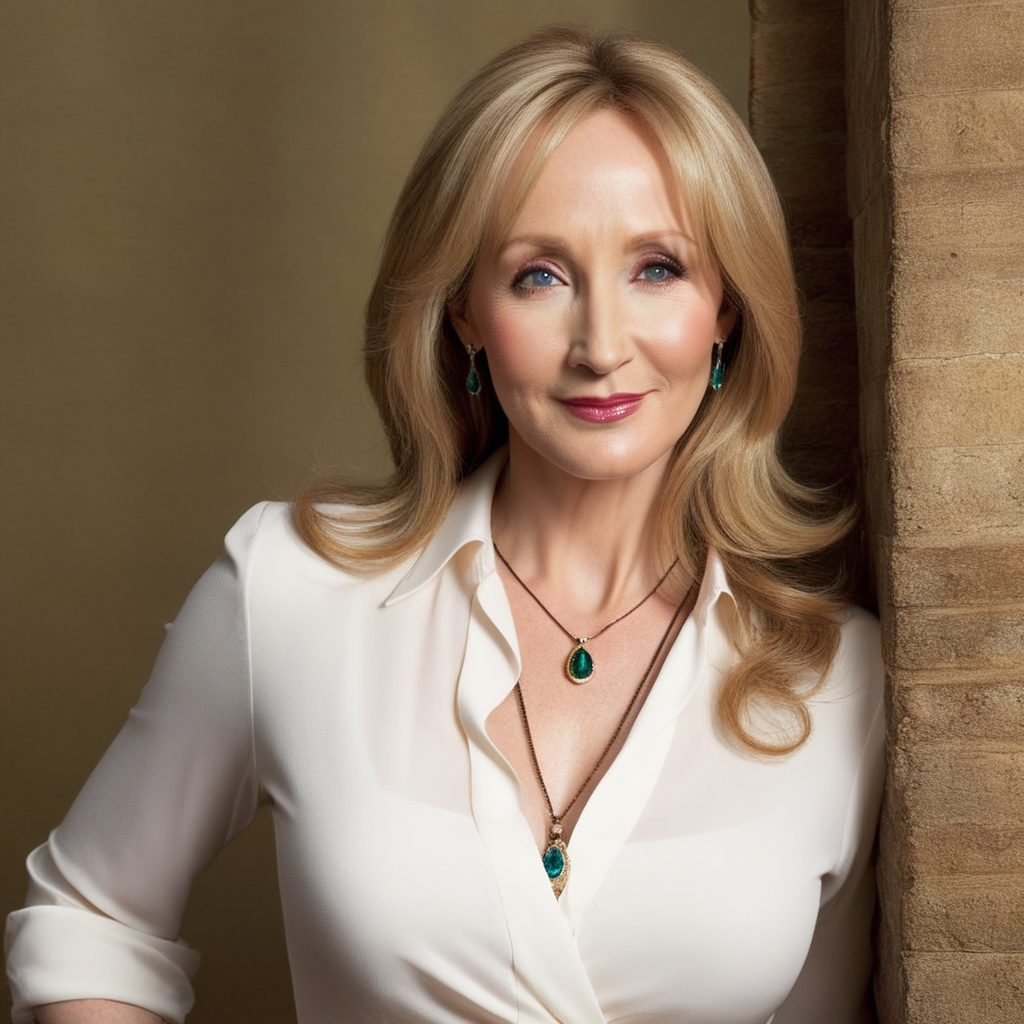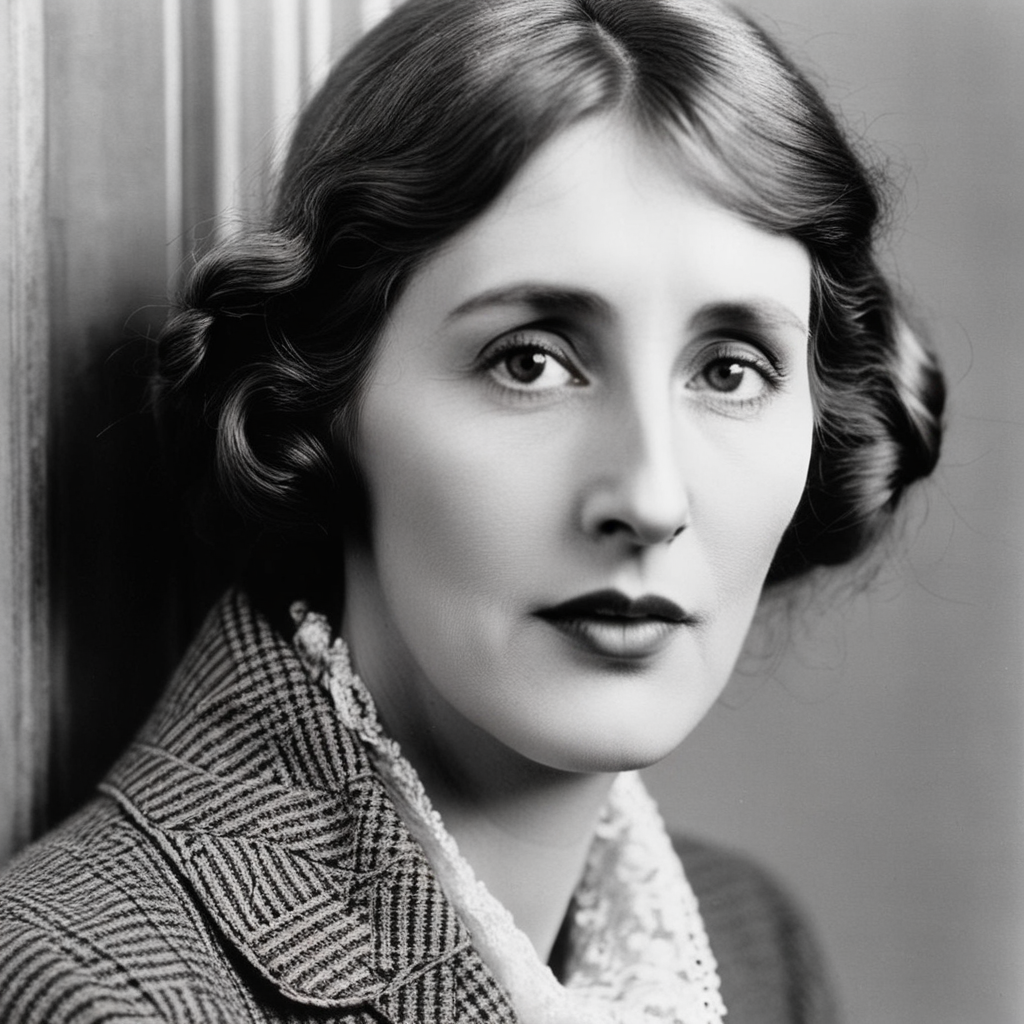J.K. Rowling: The Architect of Wizarding Wonder
J.K. Rowling: The Architect of Wizarding Wonder
Grab your wands and hop aboard the Hogwarts Express; we’re delving into the enchanting world of J.K. Rowling, the creative mind behind the wizarding wonder that captured the hearts of millions around the globe. Rowling’s journey from aspiring writer to literary luminary is a tale of magic, resilience, and the power of imagination.

The Early Chapters: From Idea to Icon
Coffee Shop Chronicles: Rowling’s journey began in the most unexpected of places—a cozy Edinburgh coffee shop. Armed with nothing but a notebook and a head full of ideas, she penned the first draft of what would become the globally beloved “Harry Potter and the Philosopher’s Stone.” The magical universe of Hogwarts was born in those scribbled pages.
Rejected But Unbowed: The path to wizarding fame wasn’t a smooth one. Rowling faced rejection from multiple publishers before Bloomsbury took a chance on the tale of a young wizard. The lesson here? Even magical journeys have their share of bumps, but persistence can turn rejection into literary history.
I remember discovering Harry Potter for the first time as a child. It wasn’t just a book; it was an invitation to a realm where anything was possible. Little did I know, J.K. Rowling’s words would shape my love for storytelling and ignite my imagination.
Spellbinding Success: The Rise of a Literary Legend
The Wizarding Phenomenon: The release of the Harry Potter series sparked a cultural phenomenon. Bookstore lines stretched around corners, fans eagerly awaited midnight releases, and discussions about Hogwarts houses became as common as discussing the weather. Rowling didn’t just write books; she conjured a global community of fans.
Movie Magic: The magic didn’t stop with the books. The film adaptations brought Rowling’s words to life, captivating audiences with the wonders of the wizarding world. It was a cinematic spectacle that mirrored the author’s ability to craft a narrative that resonated across generations.
Attending the midnight release of the final Harry Potter book was more than a literary event; it was a celebration of a journey that had shaped my adolescence. The excitement in the air was palpable, and it marked the end of an era while solidifying Rowling’s place in literary history.
Beyond Hogwarts: Rowling’s Impact on Literature
Casual Vacancy: Rowling didn’t rest on the laurels of her magical success. Her foray into adult fiction with “The Casual Vacancy” showcased her versatility as a storyteller. While the setting shifted from Hogwarts to a small English town, the depth of character and narrative complexity remained.
Cormoran Strike Mysteries: Under the pseudonym Robert Galbraith, Rowling ventured into the crime fiction genre with the Cormoran Strike series. It was a testament to her ability to transcend genres and keep readers spellbound with her storytelling prowess.
Reading Rowling’s post-Harry Potter works felt like reconnecting with an old friend who had embarked on new adventures. The familiarity of her narrative voice combined with fresh stories was a literary treat that bridged the gap between the magical and the mundane.
Rowling’s Personal Journey: Triumphs and Challenges
Philanthropy and Activism: Beyond the pages of her books, Rowling has been a vocal advocate for social issues. Her philanthropic efforts, coupled with her outspoken stance on matters like equality and mental health, exemplify the impact an author can have beyond their written words.
Navigating Controversies: Rowling’s journey hasn’t been without controversy. Her views on certain social issues sparked debates and divided opinions. It was a reminder that even the architects of magical worlds are, at the core, human beings with their own perspectives and complexities.
Rowling’s courage in addressing societal issues through her platform showed me that storytelling isn’t just about crafting fictional tales—it’s also about engaging with the world and contributing to important conversations.
The Ever-Expanding Wizarding World
Pottermore and Beyond: Rowling’s dedication to her fans led to the creation of Pottermore, an online platform that expanded the lore of the wizarding world. From detailed character backstories to interactive quizzes, it was a testament to her commitment to providing fans with more than just books.
Fantastic Beasts: The wizarding world continued to evolve with the “Fantastic Beasts” film series. Rowling’s involvement in expanding the narrative showcased her desire to keep the magic alive for both new and longtime fans.
Exploring the additional layers of the wizarding world through Pottermore felt like receiving a personalized Hogwarts letter. Rowling’s ability to continually enrich the lore spoke to her understanding of the insatiable curiosity of her audience.
The Enduring Magic: J.K. Rowling’s Literary Legacy
Honoring the Source: Rowling’s impact on literature goes beyond the sales numbers of her books. It’s in the readers who found solace in Hogwarts during challenging times, the aspiring writers she inspired, and the literary landscape she transformed with a stroke of her quill.
The Power of Imagination: Rowling’s legacy lies in her ability to kindle the flame of imagination. Through her words, she empowered readers to believe in the extraordinary, find magic in the ordinary, and embrace the power of storytelling.
As I revisit the Harry Potter series as an adult, the magic hasn’t faded. If anything, it has deepened, and I find myself appreciating the nuances of Rowling’s storytelling that I may have missed in my youth. Her books are a timeless testament to the enduring magic of a well-spun tale.

In the realm of literature, J.K. Rowling isn’t just an author; she’s the architect of wizarding wonder. Her books are not just stories; they’re portals to a world where magic is real, friendships are forged, and the power of imagination knows no bounds. As we turn the pages of her literary legacy, we’re reminded that, indeed, the magic lives on.


